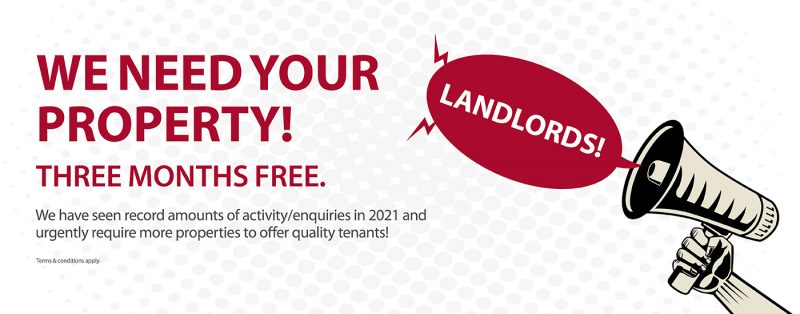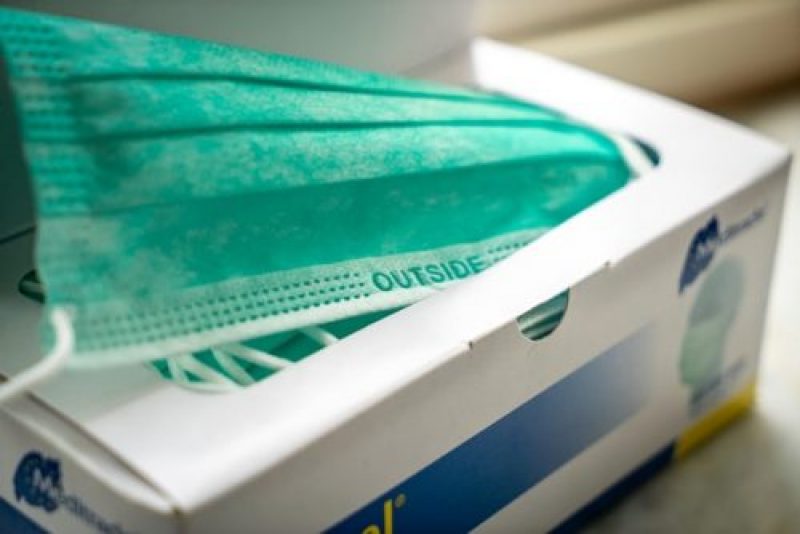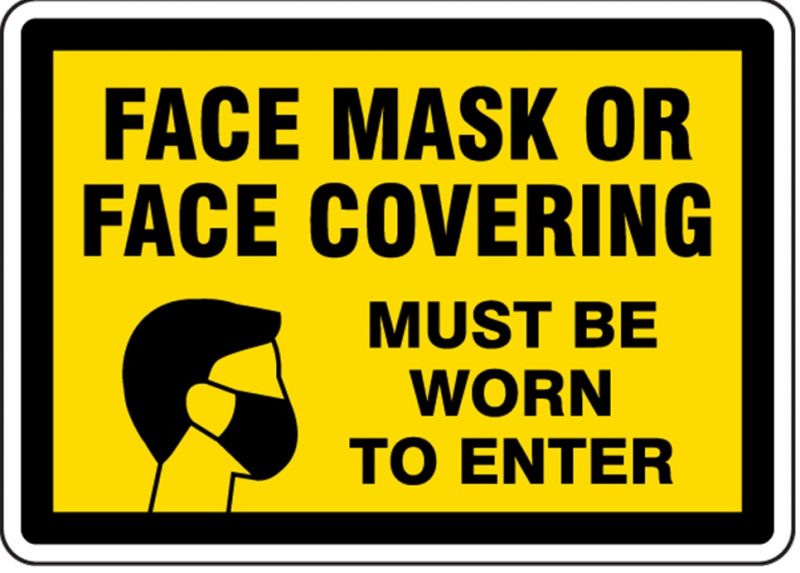Complying with Law
More and more legislation is coming out every year, making it increasingly difficult for Landlords to comply with Law. Even though some of the legislation is not ‘statutory’, if anything does go wrong, then you may still end up with a fine or imprisonment. It may well be better therefore to leave it to a professional letting agent to manage the whole process for you, to make sure you do comply with law.
Homes (Fitness For Human Habitation) Act 2018
The Homes (Fitness for Human Habitation) Act 2018, known as the Homes Act, replaces Section 8 of the Landlord and Tenant Act 1985 (LTA 1985) in England, with the purpose of improving living standards in the private and social rented sectors.
PREVIOUS RULES
Under the Housing Act 2004, landlords and agents were not required to ensure their rental properties were free of potentially harmful hazards. Consequently, an offence was only committed where the landlord or agent had failed to comply with an Improvement Notice issued by the local authority.
The tenant could not take their landlord or agent directly to Court and had to rely on the action of the local authority. Consequently, landlords and agents could legally rent out defective properties, and unless this was addressed by the local authority, they had no requirement to rectify any hazards.
THE CHANGES
Under the Homes Act 2018, landlords and letting agents acting on their behalf must ensure properties, including common parts where they have an estate or interest, are fit for human habitation at the beginning and throughout the duration of a tenancy. Tenants will now be able to take direct legal action if their agent or landlord does not comply with the Act.
ELIGIBILITY
The rules have applied to all domestic tenancies granted or renewed on or after 20 March 2019 and all Periodic Tenancies that commenced before 20 March 2019 are subject to the legislation from 20 March 2020. The legislation affects tenancies in England only.
FITNESS FOR HUMAN HABITATION
Fitness for human habitation is defined in the LTA 1985. The Homes Act amends this definition to include other dwellings alongside houses. A property unfit for human habitation is ‘so far defective in one or more of those matters that it is not reasonably suitable for occupation in that condition.’ ‘Matters’ refers to: Repair; Stability; Freedom from damp; Internal arrangement; Natural lighting; Facilities for preparation and cooking of food; Water supply; Drainage and sanitary conveniences; Ventilation; and facilities for the disposal of wastewater.
NB: The Homes Act adds to this list ‘any prescribed hazard.’
PRESCRIBED HAZARDS
The Housing Act 2004 defines a ‘hazard’ as ‘any risk of harm to the health or safety of an actual occupier of a dwelling or HMO which arises from a deficiency in the dwelling or HMO’. The hazards used in the Homes Act, are the 29 as listed in the Housing Health and Safety Rating System (HHSRS).
The 29 HHSRS hazards are: Damp and mould growth; Excess cold; Excess heat; Asbestos and Manufactured Mineral Fibres; Biocides; Carbon monoxide and fuel combustion products; Lead; Radiation; Uncombusted fuel gas; Volatile organic compounds; Crowding and space; Entry by intruders; Lighting; Noise; Domestic hygiene, pests and refuse; Food safety; Sanitation and drainage problems; Water supply; Falls associated with baths; Falls on level surfaces; Falls associated with stairs and ramps; Falls between levels; Electrical hazards; Fire; Flames, hot surfaces and
materials; Collision and entrapment; Explosions; Ergonomics; and Structural collapse and falling elements.
If you wish to view the Governments formal guidance please follow the link: https://www.gov.uk/government/publications/homes-fitness-for-human-habitation-act-2018/guide-for-landlords-homes-fitness-for-human-habitation-act-2018
Gas Safety (Installation and Use) Regulations 1988*
Gas Safety Legislation is statutory. If you do not comply with Law, then you are breaking the law and will be prosecuted – often resulting in a fine or imprisonment. Pipework, appliances and flues must be maintained in a safe condition. Gas appliances must be serviced regularly in accordance with the manufacturers’ instructions, or annually unless advised otherwise.
- An annual gas safety check must be carried out on every gas appliance/flue at the property and ensures that all gas fittings and appliances are safe to use.
- We recommend that you get all appliances serviced and a safety check done at the same time to save cost and to ensure that you comply.
- The regulations apply equally whether the gas comes from the mains, from a bottle or from a tank in the ground.
- If the Tenants have their own gas appliance, you are responsible for maintaining the pipework, but the Tenant is responsible for the safety of the appliance.
- All installation, maintenance and safety checks must be carried out by a Gas Safe registered engineer.
Furniture and Furnishings Fire Safety
Generally, we would recommend that you let the property unfurnished. The Furniture and Furnishings (Fire) (Safety) (Amended) Regulations 1993 require all upholstered furniture and furnishings (e.g. sofas, chairs, mattresses) supplied by the Landlord in rented properties to be fire retardant and to carry a fire retardant label. If a property fails to comply, the Landlord faces a fine or imprisonment. Generally, most furniture purchased after March 1990 should comply with the regulations and will be labelled accordingly.
Energy Performance Certificate, Ratings and Works*
Landlords of most properties (‘listed’ properties are excluded) must legally have a valid Energy Performance Certificate (EPC) before letting out their property. An EPC should cost less than £100, lasts for 10 years and we are happy to order one for you. Although the penalty is £200 a day if you are caught, we are unable to act for you without one. A qualified ‘Domestic Energy Assessor’ will need to visit your property for about 45 minutes. Their main objective is to assess how energy efficient your property is currently and how efficient it could be following works. If you think you have an EPC but cannot find it, we can retrieve it online within a few seconds free of charge.
Tenants can now request that energy efficiency improvements be carried out and Landlords will not be able to unreasonably refuse consent. It will, however, be the responsibility of the Tenants to pay for any improvements.
From the 1st April 2018, any unlisted properties rented out in the private sector will have to have a minimum energy performance rating of E. For guidance on how to make sure your property is up to standard, visit: https://www.gov.uk/government/publications/the-private-rented-property-minimum-standard-landlord-guidance-documents.
This now affects all tenancies from April 2020 including existing tenancies.
How to Rent Guide*
The Landlord must also provide Tenants with a copy of the Department for Communities and Local Government’s publication “How to rent: The checklist for renting in England” – available at www.legislation.gov.uk (Assured Shorthold Tenancy notices and Prescribed Requirements (England) Regulations 2015).
Electrical Safety -What do the Electrical Safety Standards in the Private Rented Sector (England) Regulations 2020 require?
The Regulations apply in England to all new tenancies from 1 July 2020 and all existing tenancies from 1 April 2021. You can read formal guidance at:
www.gov.uk/government/publications/electrical-safety-standards-in-the-private-rented-sector-guidance-for-landlords-tenants-and-local-authorities
Landlords of privately rented accommodation must:
- Ensure national standards for electrical safety are met. These are set out in the 18th edition of the ‘Wiring Regulations’, which are published as British Standard 7671.
- Ensure the electrical installations in their rented properties are inspected and tested by a qualified and competent person at least every 5 years.
- Obtain a report from the person conducting the inspection and test which gives the results and sets a date for the next inspection and test.
- Supply a copy of this report to the existing tenant within 28 days of the inspection and test.
- Supply a copy of this report to a new tenant before they occupy the premises.
- Supply a copy of this report to any prospective tenant within 28 days of receiving a request for the report.
- Supply the local authority with a copy of this report within 7 days of receiving a request for a copy.
- Retain a copy of the report to give to the inspector and tester who will undertake the next inspection and test.
- Where the report shows that remedial or further investigative work is necessary, complete this work within 28 days or any shorter period if specified as necessary in the report.
- Supply written confirmation of the completion of the remedial works from the electrician to the tenant and the local authority within 28 days of completion of the works
Oil Safety
Oil storage tanks and supply pipework should be checked regularly for general conditions and any leaks repaired. There is no legal requirement to obtain an ‘oil’ safety certificate, however, BS5410: Part 1 requires all oil-fired appliances and equipment to be serviced regularly in accordance with the manufacturers’ instructions. Oil storage tanks and oil supply pipework should, therefore, be checked regularly for general condition and any leaks repaired. SO WE STRONGLY RECOMMEND AN ANNUAL SERVICE.
Smoke Alarms
It is law to fit one smoke alarm per floor when letting out a property. All properties built since June 1992 (and all Houses in Multiple Occupation (HMOs)) must be fitted with mains operated smoke detector/alarms and with at least one detector per floor. If the property was built prior to 1992, then the legal requirement is for Landlords to provide ‘long life’ smoke alarms on each floor.
Carbon Monoxide Alarms
Carbon Monoxide Alarms must be fitted in any room that is used partly or wholly as living accommodation which also contains any appliance which burns, or is capable of burning, solid fuel. This would include log and coal-burning (solid fuel) stoves and open fires, even if they are not normally in use. This does not include gas and oil boilers. If an open fireplace is purely decorative and not useable then it is not covered by the regulations.
Whilst gas is not solid fuel, we would strongly recommend a Carbon Monoxide Alarm is also fitted in all rooms with a gas appliance.
Glazing
Better to be safe than sorry, so it’s vital to fit safety and toughened glass where needed such as to a single glazed back door or internal glazed door near a staircase. To avoid serious injury, safety glass should be fitted in all doors, windows and glazed areas that are lower than 800mm from the floor level. Glass panels less than 250mm wide can be fitted with 6mm glass or laminated glass instead of toughened glass.
Legionnaires’ Disease
Landlords of residential accommodation have responsibilities for combating Legionnaires’ Disease. Health and safety legislation requires Landlords to carry out risk assessments for the Legionella bacteria which cause the disease and thereafter to maintain control measures to minimise the risk. Most rented premises will be low risk but it is important that risk assessments are carried out and control measures introduced. By way of example, Legionella bacteria could be found in cut off pipework or in an unused water supply.
Immigration Act 2014
All Landlords in England are obliged to check their Tenant’s status and Right to Rent. The government is making it harder for illegal immigrants to rent accommodation. The Immigration
Act 2014 introduced a requirement for landlords of private rental accommodation to conduct checks to establish that new Tenants have the right to rent in the UK. Landlords who rent to illegal migrants without conducting these checks will be liable for a fine.
*Required to serve a Section 21 Notice to end an assured Shorthold Tenancy. All of these documents and certificates must have been provided to the Tenant.



 EXCITING OPPORTUNITY TO WORK FOR SALISBURY LEADING LETTING AGENT.
EXCITING OPPORTUNITY TO WORK FOR SALISBURY LEADING LETTING AGENT.







